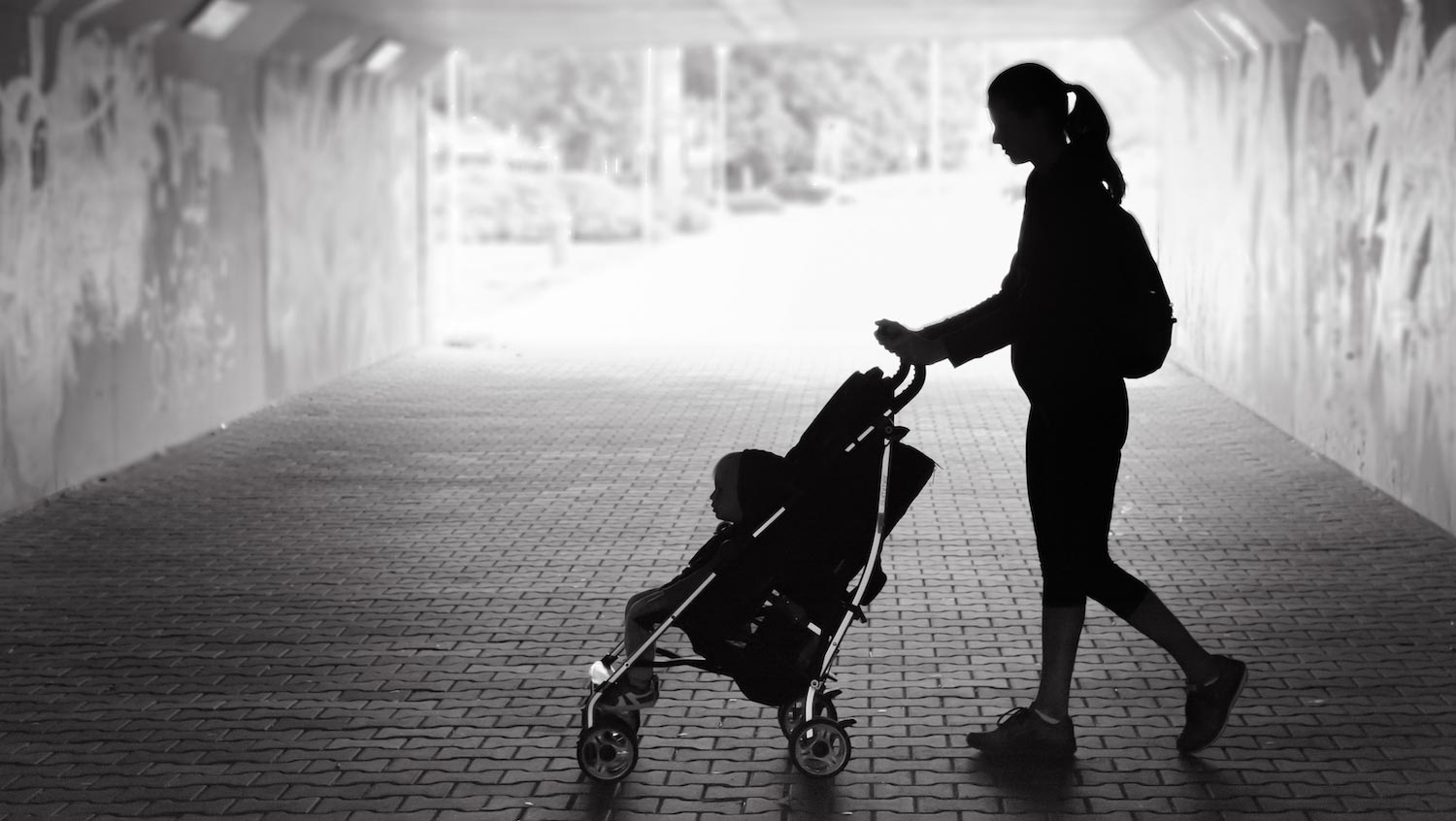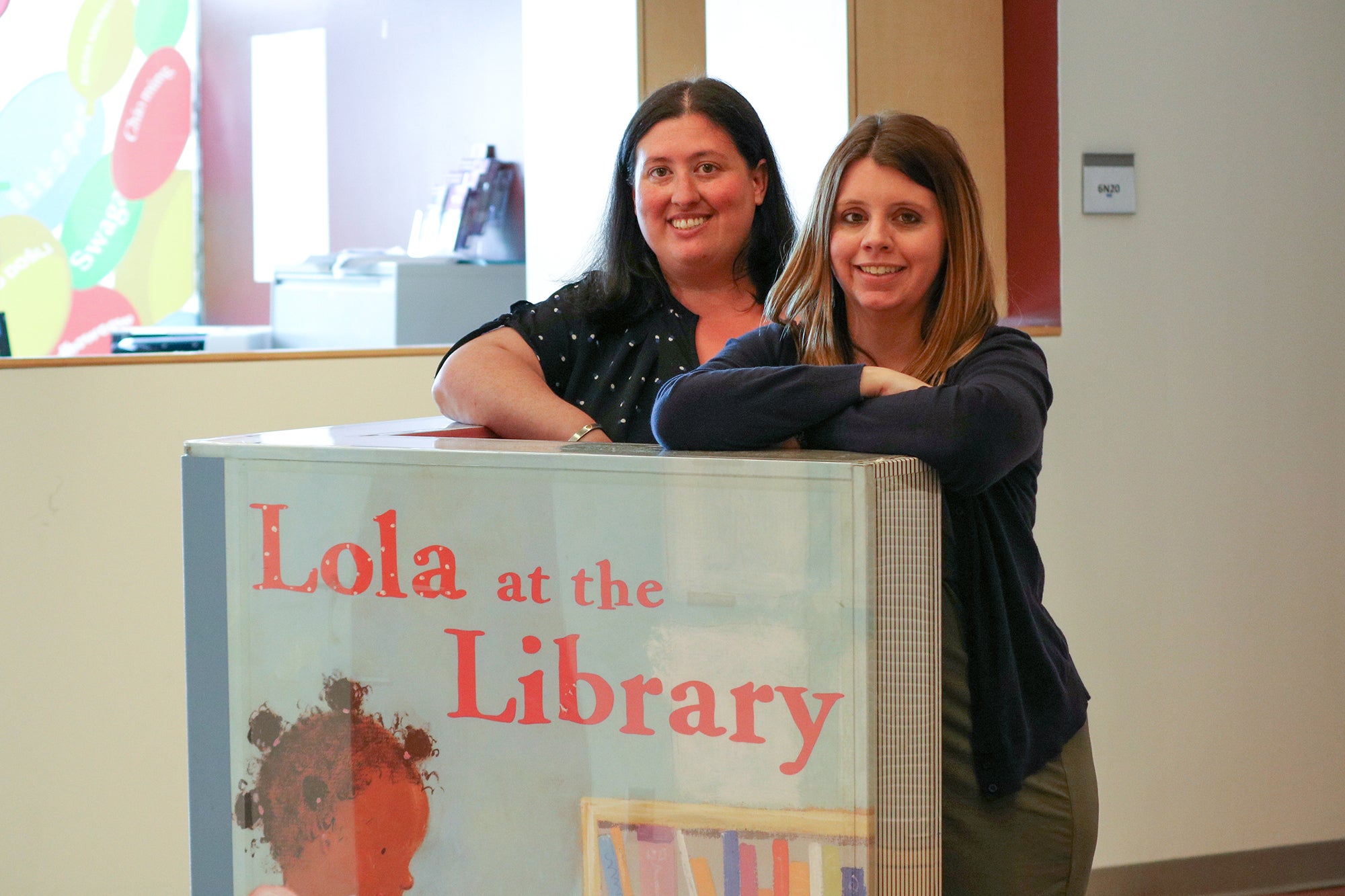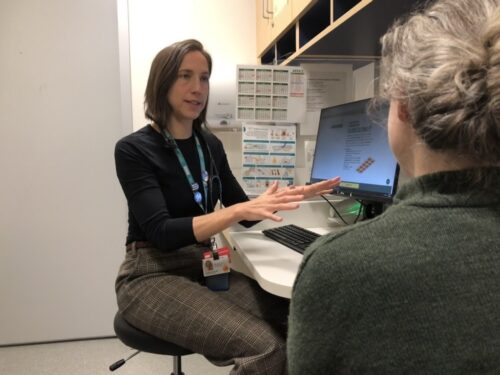Keeping Families Together: Support from Social Work Critical in Substance Use Recovery for New Parents
June 27, 2019

Getty Images
Social workers and patient navigators play a key role in providing services, reducing stigma, and breaking down barriers to care for parents with substance use disorder.
Being a new parent is a tough job for anyone — but it’s even more difficult when recovery from substance use disorder (SUD) is part of the mix. For parents who are also struggling with a lack of resources, such as housing, transportation, or childcare, the situation can be overwhelming.
“So many expectations are put on parents in recovery,” says Jill Baker, a clinical social worker at Boston Medical Center (BMC). “If they’re in a residential program, they need to be doing chores. They need to go back to work after six weeks of maternity leave. Getting kids into daycare is so difficult for these parents — they need to be working to get a daycare voucher, but they can’t work if they don’t have daycare. It’s an impossible system.”
Stigma is often an additional barrier to care for their condition, as is the fear of the Department of Children and Families (DCF) taking away their children. Managing so many stressors at once is a lot to handle, and recovery, parenting, or both may suffer without proper support.
“A lot of my work is helping parents with whatever they need help with, because if the parent’s not doing well, the child’s not going to do well, and they will end up separated,” Baker says.
A partner in navigating SUD recovery
Baker is the clinical social worker for Supporting Our Families through Addiction and Recovery (SOFAR), a program at BMC that provides care and assistance to families to encourage healthy outcomes for both parents and children.
The team helps 125 families affected by substance use overcome their barriers to care, with a focus on decreasing stigma — positive relationships between the families and care team are key to the recovery process. Now entering its third year, the program sits within the hospital’s pediatric primary care clinic and comprises physicians, nurse practitioners, a social worker, and a patient navigator.
The integration of a social worker and patient navigator adds a high-touch partner for the family and is an essential part of preventing parent-child separation and helping patients make progress on their parenting and recovery goals.
“We have moms come to us and say, ‘This is the first time I haven’t felt judged,’” says Kristin Reed, the patient navigator with SOFAR.
The patient navigator is often a parent’s first point of contact and is a resource for a variety of issues, from baby formula to public benefits. The SOFAR navigator schedules appointments and consolidates families’ multiple trips to BMC, connects patients to housing services through Metro Housing Boston, and coordinates access to WIC, Early Intervention, and MassHealth’s PT-1 transportation service. The navigator also helps with treatment adherence, reminding patients of their appointments and following up on missed appointments to ensure they stay connected to care.
“Having a direct line makes everything better for the families,” Baker says.
Working as a team
Open and frequent communication between team members is key to SOFAR’s success. The team meets weekly to make sure patients don’t slip through the cracks. Although doctors have ultimate authority in many medical settings, SOFAR’s operations are more egalitarian.
“Our providers are very appreciative. They know how much easier their job is because we’re here,” says Reed.

Jill Baker, clinical social worker, and Kristin Reed, patient navigator, help coordinate all levels of care and provide emotional supports to parents and families as they go through recovery. (Nilagia McCoy)
Baker explains that the doctors value team members’ opinions and constructive criticism and feedback because of their level of communication with the families.
Particularly when the kids are younger, notes Baker, family support involves a lot of parental mental health support. That can include making sure that they’re connected to therapists and recovery support or doing relapse prevention and providing emotional support. The social workers at SOFAR also assist with tasks that come along with being a new parent, such as work with DCF and referrals to specialized daycares and programs that work specifically with parents in recovery.
Making social work models scalable
While SOFAR is still reviewing preliminary data on patient outcomes, Reed says that many families have stayed intact. “We’ve gotten over one of the big humps. The 6- to 9-month age is when relapse is most likely to happen,” she says.
Despite what the team views as early success in the SOFAR model, there are systemic challenges that prevent the model from scaling.
“We’re not able to bill for our services,” says Reed, referring to the fact that Medicaid and Medicare do not currently pay for all of the services social workers and patient navigators provide. The team hopes that will change as the value of addressing social needs in healthcare settings gains traction.
“We are saving money in the long run. If a mom is feeling sad and stressed out, spending time to help her overcome challenges is going to have a better outcome for her kids,” says Reed. “But it’s hard to show that on paper, because it’s not an immediate box we can check that says, ‘This has been completed.’ It can take a year for something to come to fruition.”
Workforce capacity is also an issue. “Ideally we need more of us,” said Reed. “There’s so much more that we could do.”
This article is part of a series from the Boston University Center for Innovation in Social Work & Health (CISWH) that highlights success stories about social workers working in healthcare and public health to address the nonmedical factors that impact health, known as social determinants of health. Know of a healthcare team that’s doing innovative work involving social workers? Contact us — we want to hear your story.


